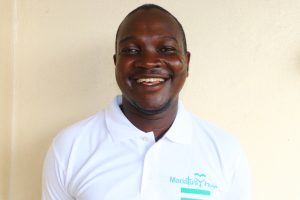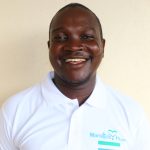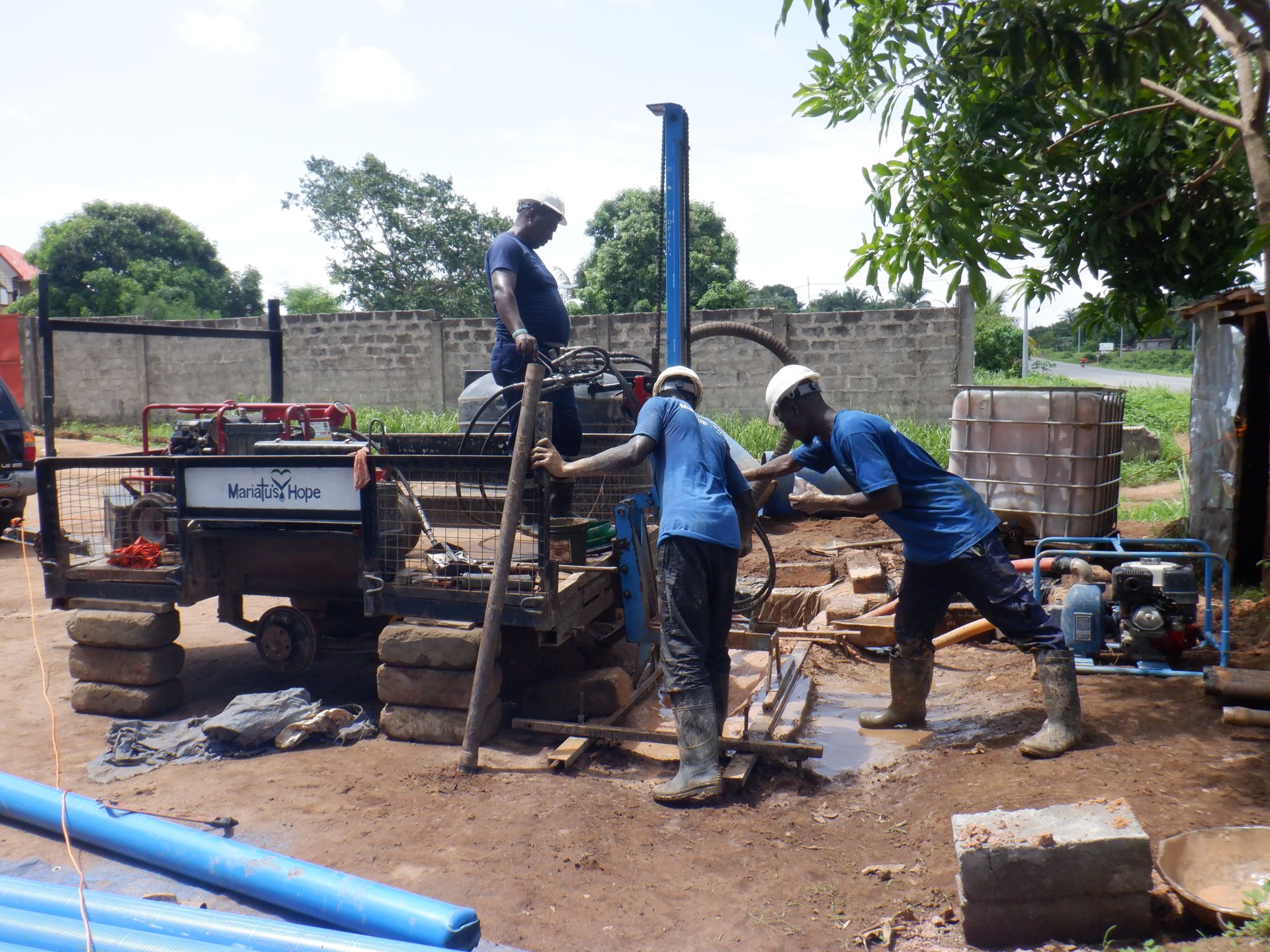The Robis Community, which has 175 residents, depends on private protected dug wells to meet its daily water needs, but these wells prove to be unreliable sources. Since they are private wells, access is dependent on the owners, who can choose who and when they can get water, meaning community members never know if they can collect water. Walking to one of the wells also forces community members to cross a dangerous highway, putting their safety at risk.

Heading to the well.
"All the water sources of this community are restricted. Sometimes, you need to wait outside for so long before gaining access to the water. The crowd at the waterpoint is also delaying me from getting water at the right time," shared 16-year-old Rachel.
Field Officer Alimamy Lamin said, "The water source is overcrowded in such a way that the water user may not be able to get the correct quantity of water they need. Overcrowding at the water source may lead to the contamination of water and it could also lead to fighting and quarrelling among water users. Issues of stealing five-gallon buckets are also reported by some water users during the process of trying to fetch water."
The water crisis in the Robis Community has created divides that fracture their unity daily.
"When there is too much [of a] crowd at the water source, there are some people who are always unkind to me. The reason is that the water source is a private well, and the owners may take advantage of the situation that they may want to fetch water at any time despite coming late," 16-year-old Rachel lamented.

Rachel carrying water.
"There are times when our elders push us at the back of the queue. This is something that happens when there is a total water crisis in the community. I remember some time ago when I was pushed to go [to the] back of the queue due to the total crowd at the waterpoint," she continued.
Fetching water is an arduous, draining process that saps Rachel's physical and emotional energy. Water scarcity is challenging enough without the added weight of conflict.
"I feel sad when I am sent to go and fetch water, especially when I am just from school," she added.
To make matters worse, Rachel sacrifices valuable time that should be spent on her education to collect water. Without a good education, she will struggle to reach her goals and will likely stay stuck in a cycle of poverty.

Rachel collecting water.
"As a result of the scarcity of water within the community, my time at school is always impacted. The time I spend at the water source in the morning hours always makes me too late to go to school. This is a result of the restrictions of the waterpoint. The owners of the waterpoints only [open] them when they feel like doing so. That is the reason why I spend so much time at the water source, and hence impacts my time at school and leads to poor performance," Rachel shared of her educational experience.
Installing a well in Rachel's community will eliminate their dependency on individuals' schedules for water access. A community well means it's open to all, all the time. They will share responsibility for its upkeep, and everyone will benefit from clean water access and the unity it allows among them.
Rachel said, "My plans for the future are to help take care of the proposed waterpoint. Also, I plan to be a successful student in my primary, secondary, and tertiary education."
Steps Toward a Solution
Our technical experts worked with the local community to identify the most effective solution to their water crisis. They decided to drill a borehole well, construct a platform for the well, and attach a hand pump.
Well
Abundant water often lies just beneath our feet. Aquifers—natural underground rivers—flow through layers of sediment and rock, offering a constant supply of safe water. A borehole well is drilled deep into the earth to access this naturally filtered and protected water. We penetrate meters, sometimes even hundreds of meters, of soil, silt, rock, and more to reach the water underground. Once found, we construct a platform for the well and attach a hand pump. The community gains a safe, enclosed water source capable of providing approximately five gallons of water per minute. Learn more here!
Community Education & Ownership
Hygiene and sanitation training are integral to our water projects. Training is tailored to each community's specific needs and includes key topics such as proper water handling, improved hygiene practices, disease transmission prevention, and care of the new water point. Safe water and improved hygiene habits foster a healthier future for everyone in the community. Encouraged and supported by the guidance of our team, a water user committee representative of the community's diverse members assumes responsibility for maintaining the water point, often gathering fees to ensure its upkeep.

 Borehole Well and Hand Pump
Borehole Well and Hand Pump
 Rehabilitation Project
Rehabilitation Project

















